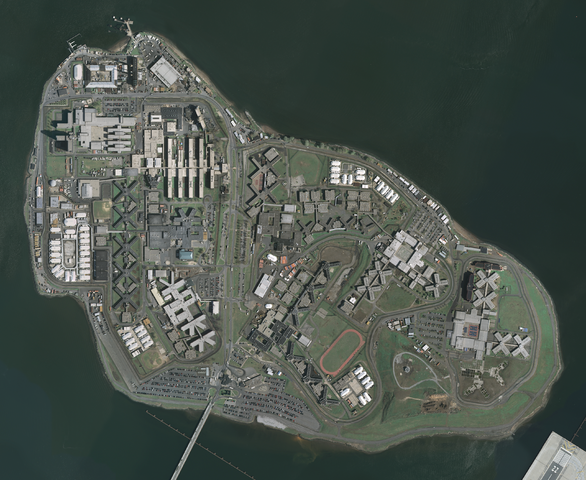It's Really Easy to Smuggle Drugs Into Rikers Island Prison, Investigation Finds

It's been a bad public relations year for the violence- and corruption-plagued Rikers Island Correctional Facility in New York City. Reports of prison guards savagely bludgeoning inmates to death—and more often than not getting off scot-free. Hundreds of inmates suffering serious injury from guard brutality. A culture of fear and intimidation to suppress any repercussions for officers and their superiors. And all this at a hefty price for taxpayers.
But the truculent guards at Rikers don't only spend their time brutalizing inmates—they also act as well-paid couriers, secreting drugs and other contraband into the prison. Last month, an undercover Department of Investigation (DOI) agent managed to smuggle $22,000 worth of illicit goods into all six facilities on Rikers Island. The New York Times reports:
The pockets of his cargo pants, according to the report, were bulging with 250 packets of heroin; 24 strips of Suboxone, a pain killer; and half a pound of marijuana.
He was also carrying a razor blade and a water bottle full of vodka.
The undercover agent would've been handsomely paid for his services, according to the DOI report:
DOI estimates, based on intelligence it has gathered, that a [Department of Corrections] employee could make approximately $3,600 in courier fees for the amount of contraband smuggled during each operation.
Over the past year and a half, six guards and a nurse have been arrested for smuggling at Rikers. The DOI investigation reports that correctional officers sneaked in thousands of dollars worth of drugs, tobacco, and alcohol to inmates who then resold the products to other prisoners. Tobacco alone is quite a lucrative enterprise, with a pack of cigarettes reportedly costing upwards of $200 in NYC's smoke free jails.
The DOI blames the prison's smuggling problem on lax security protocols and their rather insouciant enforcement. When the undercover investigator set off a metal detector at one facility, a guard asked him to empty his pockets. The investigator lied, saying that he had already done so, and the guard let him pass through the checkpoint without batting an eye.
Based on its findings, the report recommends drug sniffing dogs, more oversight of staff entrances, and implementation of Transportation Security Administration–style security procedures. Because those work so well.
The great irony is, of course, that even in a prison on an island, officials can't break apart the quid pro quo between drug users and their suppliers. But don't worry, America. Once we finally get that border fence up and running, we'll finally be able to make some progress in the war on drugs.


Show Comments (8)